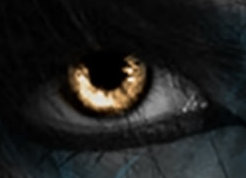Why George Wouldn’t Sign The Constitution
By James Donahue
This is not a story about George Washington. This is about another man involved in framing the U.
S. Constitution, bringing about the Bill of Rights, and influencing the way our nation operates today. His name was George
Mason, someone few of us have ever heard of and rarely, if ever, mentioned in American history books.
This is probably because Mason, although an elected representative from Virginia to the Constitutional
Convention of 1787, refused to sign to ratify the Constitution. This was because he said he did not believe it established
a wise and just government, and set up a formula for "a corrupt, tyrannical aristocracy" instead of the republic that was
being sought.
Mason said his primary objection to the document, as it was originally written, was that it lacked
a Bill of Rights. It was through his insistence that our Bill of Rights was later added in the first ten Constitutional Amendments.
His other concerns were outlined in a draft titled "Objections to This Constitution of Government,"
which he distributed to the convention before the document was signed. It called not only for a "Declaration of Rights" but
warned that the Congress was not truly representative of the people, the Senate was too powerful, the federal judiciary was
"so constructed and extended" as to render justice unattainable and "enable the rich to oppress and ruin the poor," and the
President was given too much unbalanced power and would receive counsel from his own appointed staff.
Mason perceived the House of Representatives as only "a shadow only of representation; which can never
produce proper information in the legislature or inspire confidence in the people; the laws will therefore be generally made
by men little concerned in, and unacquainted with their effects and consequences."
He wrote that the Senate would have "the power of altering all money bills and of originating appropriations
of money, and the salaries of the officers of their own appointment, in conjunction with the president . . . although they
are not the representatives of the people or amenable to them."
Mason supported a three-person executive instead of a single president. He saw this is a form of a
monarchy. He believed the office of vice-president was unnecessary and perhaps a problem. The vice-president’s only
real duty was to act as president of the senate "thereby blending the executive and legislative powers."
He also argued for the separation of church and state. To allow the church or any other religion to
have influence over the two houses, executive office or judicial branch would "leave our country wide open for hostile take-over."
Mason stood before the convention, presenting his arguments numerous times, and in the end, managed
to make a few important changes in the final document.
He pressed for a weak central government, strong state governments and the eventual abolition of slavery.
Mason was a slaveholder, as were other members of the convention. Yet he recognized slavery as wrong and thus advocated the
slow but deliberate reduction of slavery, and an immediate prohibition of slavery in states where it was not yet practiced.
But he was unsuccessful in getting this written into the constitution.
After the Constitution was ratified and George Washington was elected President, Mason declared a
general disgust in the direction the nation was heading and resigned from politics.
Had the founding fathers listened to Mason and followed his wise counsel, America would probably have
avoided the Civil War, and perhaps appear as a much better influence on the world stage than it is today.

